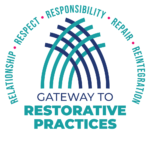Parent Tip 1
Children and Teens needs guidance and patience from you when it comes to teaching them how to apologize and make amends.
Parent Tip 2:
Help your child/teen to notice how he/she feels about the situation or mistake and think about how someone else is feeling and what he/she might be thinking.
Parent Tip 3:
Ask your child/teen questions to get an account of the story and help the child process the event. Examples: “Can you tell me what happened?” or “I’d like to know what is going on. Maybe I can help.”
Parent Tip 4:
Help your child/teen understand that taking responsibility means saying that it was his/her fault and he/she did something he/she should not have done.
Parent Tip 5:
Help your child/teen make a commitment to change the behavior and make a plan to repair the harm and make things right.
Sources
- Brill, Ariadne. Children Are Wired for Empathy and Insisting On Apologies Is Not Necessary. August 6, 2017. https://www.positiveparentingconnection.net/teach-child-say-sorry/
- Pointer, Lindsey C. Restorative Justice Facilitates Effective Apologies. May 30, 2016. https://lindseypointer.com/2016/05/30/restorative-justice-facilitates-effective-apologies/
- Image: dialog-tip-advice-148815_1280 [Pixabay.com]

